There are authors who point out, possibly from a more affectionate than objective perspective, that it was the Templars who introduced a revolutionary architectural style in the West, which would render completely obsolete the Romanesque style that prevailed until then: Gothic.
With the Gothic, the cathedrals, mainly - all of them, with some exceptions, dedicated to the figure of Our Lady (1) - reached such a surprising level of technique and perfection, that even in modern times they were an architectural example to follow, irrespective of whether there were architects, such as the brilliant Antoni Gaudí, who considered it incomplete and came to affirm, at some point in his career and possibly allowing himself to be carried away by his romantic spirit, that his true greatness was much appreciated in a ruinous state and invaded by nature.
Anecdotes and opinions apart, it would not be the first time that the powerful financial coffers of the Temple came to light, as guarantors or promoters in the shadow of more than one cathedral.
Based on this, it seems that with this Cuenca cathedral there is some suspicion in this regard, although, as with most cathedrals, only a part of that original dream transmuted to the stone, which was carried out by stonemasons, survives. of Norman origin, supposedly, that together with the Templars and other cavalry orders accompanied King Alfonso VIII in his campaign of siege and capture of the city.
Perhaps, part of that supposed and apparently legendary attribution is due, among other things, to the closeness that they were of it, if we take as good the references that placed them in the immediate vicinity, in the one that was defenestrated and complete ruin that is today, the church of San Pantaleón.
However, and without pretending to teach a topic that seems so unsustainable, some evaluations could be made, always from a subjective perspective, hypothesizing about some objects and their apparent added symbolism, which in an approximate way, could have a certain relationship, even as a matter of parallelism to that supposed line of thought that the Templars developed, both in the buildings they built and in those others they inhabited, on which they used to display the signs of recognition, as recommended by Master Roncellin, if we were to believe, in turn, in no less hypothetical secret statutes of the order, accessible only to a very small circle of brothers.
Obviously, and as was said at the beginning, one of the biggest inconveniences is that today, there are few or no cathedrals that keep their original state intact. On the contrary -and the cathedral of Cuenca is no exception to the rule-, they have all been modified with demolitions and subsequent additions that serve as a warning, hinder and greatly obstruct the pursuit of a so-called signals, which would have to be trace back, at least, to the twelfth and thirteenth centuries.
Yes, it could be taken as true, however, that Unamuno's assertion, which he saw, both in the present cathedral, and in Barcelona, and possibly referring to the curious and at the same time complicated structure - not so easy to understand, at least to the naked eye, as, in his opinion, the pulchra leonina de León, simple but elegant, but without taking into account the extraordinary philosophical universe hidden behind its monumental sculptures, a decidedly mysterious place.
Mysterious could be considered, on the other hand, certain images displayed in the three main doors, in whose allegories -including the plant imagery and the different faces, both human and fantastic that arise from it, a detail that could have led to C.G. Jung to affirm that the adoration of the beauty of nature leads the medieval Christian to pagan ideas (2), referring to the suggestions of the so-called First Fathers of the Church-, a double meaning could be intuited that, in a way of key, could be interpreted by the brothers of the Order beyond its apparent literalness.
Nor does it seem accidental, at all, that one of the references to the Knights of the Holy Grail - as the Templars were also considered - appears on the city's own shield - a chalice and an eight-pointed star - coinciding in addition , with the epoch of greater height or diffusion of the medieval griálica Literature, being the most significant epics, indeed, those that wrote, apparently, two templarios; or at least, and failing that, two characters who maintained close ties with the Order: Chrétien de Troyes and Wolfram von Eschenbach, with their respective The Grail and Parzival tale.
In this regard, it may be interesting to note that, among the aforementioned symbolism that brings together characters of different characters -including the wild one- adventurous -as many of the episodes related to the Grail ques- tion-, another symbol is appreciated that, in addition to go unnoticed generally, can also become relevant. And among them, I can not think of anything better than a symbol that, hypothetically speaking, alludes, by reference, to one of the invocations of those of Our Lady, more related to the Templars: the oak.
Another reference, equally related to them, would be the spine, not being few places so named where their presence is
confirmed, detail that could be glimpsed in the character that is taking it from the sole of his left foot, centered again in the symbolic added to those six sculptures that we already mentioned that are located in the access doors, where you can also see the figure of a king subjected to the power of God and the Church, to which the Temple did not have to pay tribute; a possible allusion to Pan and the ancient mysteries, which may, perhaps, be assumed in the background of that character who is playing the flute or pipe and in the loops of whose hairstyle, we can see, also, a universal symbol: the double spiral; or that possible warning of caution that can lead to the inclusion of a character, probably allusive to the figure of Judas Iscariot, who holds a dagger in his right hand while eagerly holding a bag full of coins in his left hand.
Interesting, in addition, is also the presence, in the wood of the doors, not only of the characteristic Celtic green-men, but, in addition, the profusion of an unequivocal symbol of the Mother, the matrix and the fecundity: inverted triangle.
It seems true, notwithstanding all the above, that the base of the pillars of the transept form a perfect cross kick, and that, in the form of the traceries of triforium, you can glimpse a transcendental symbol: the cross Ansata or cross of Life, whose shape is not unknown on the floor of more than one building considered Templar, among which include the hermitage of San Bartolomé, in the Cañon del Río Lobos.
Notes and bibliography:
(1) The theory that the French cathedrals, dedicated precisely to the figure of Our Lady, rose in such a way that they make up on earth the exact detail of the configuration of stars that show in the sky that constellation we know with the name of Virgo; that is, the Virgin. You can even come to collation, include the alleged templar assertion that affirmed that of: with Her begins and ends our Religion.
(2) C.G. Jung: 'Symbols of Transformation', Editorial Trotta, S.A., Madrid, 2012, page 95.
Related Movie:
NOTICE: originally published in my blog LA ESPAÑA DE LOS TEMPLARIOS (http://juancarlosmenendez.blogspot.com). Both the text, as the photographs, and the video (except music, reproduced under a YouTube license), are my exclusive intellectual property. The original entry, where you can check the authorship of juancar347, can be found at the following address: https://juancarlosmenendez.blogspot.com/2016/10/tras-las-huellas-del-temple-en-la.html
If you liked what you have read and seen, I invite you to know the world of: @ juancar347
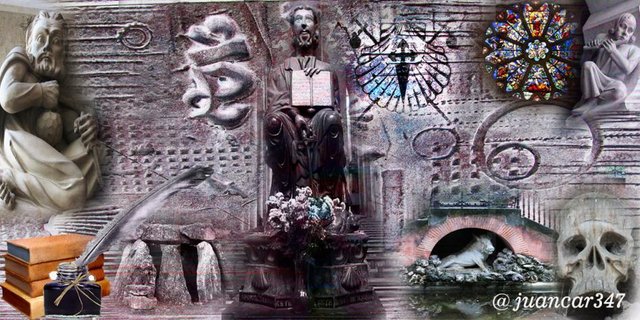
designed by: @txatxy
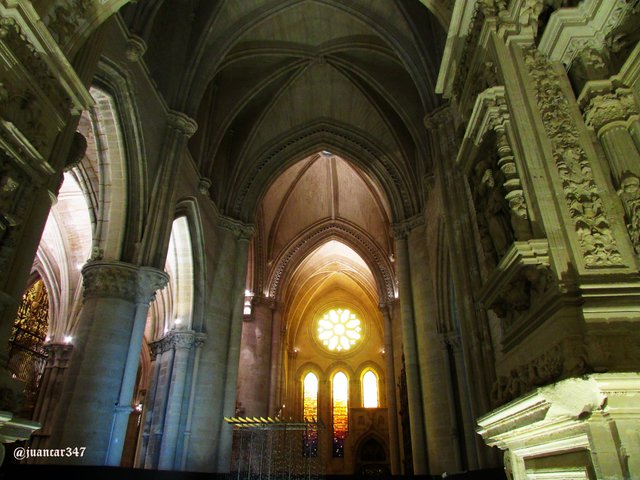
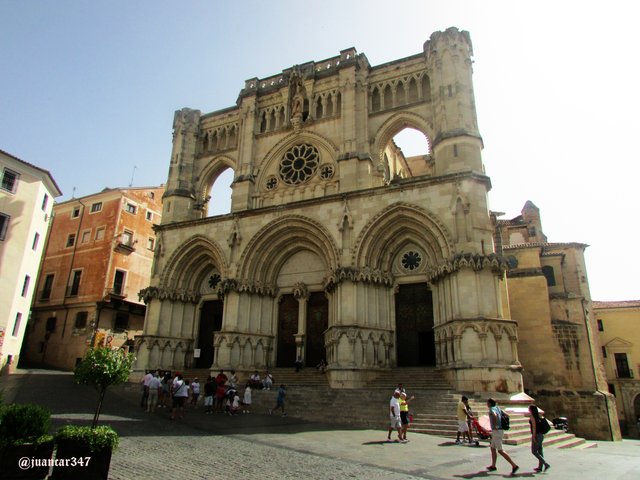
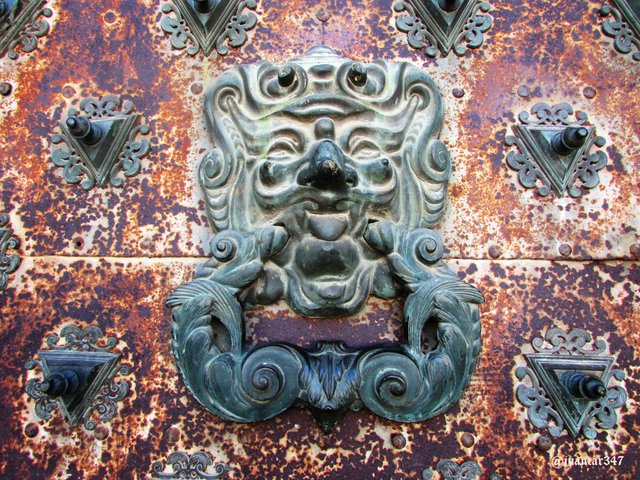
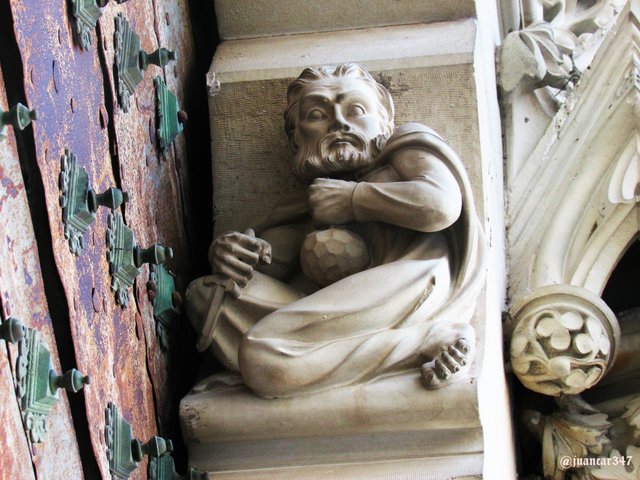
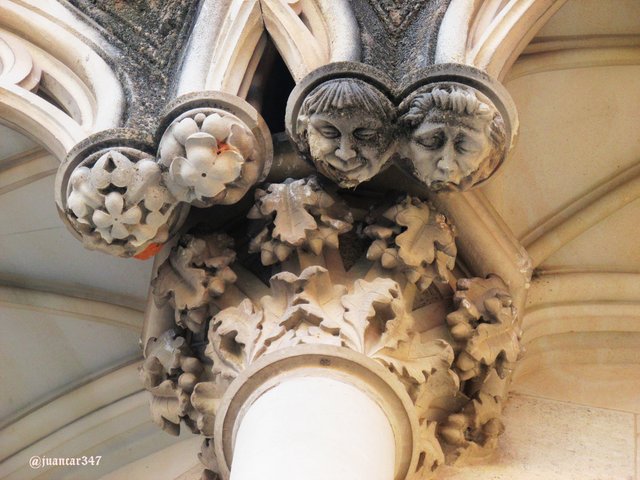
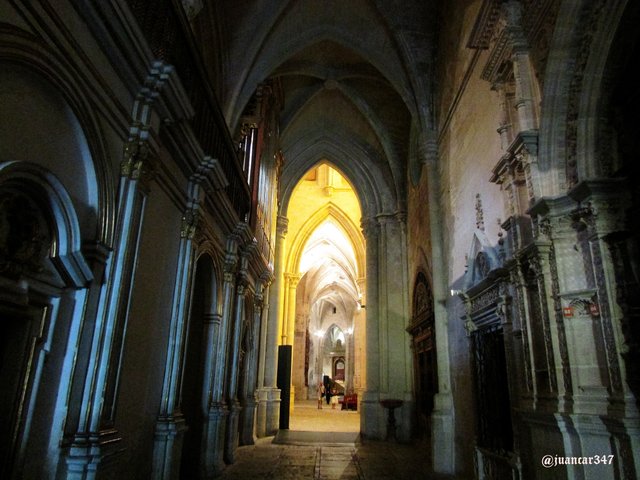
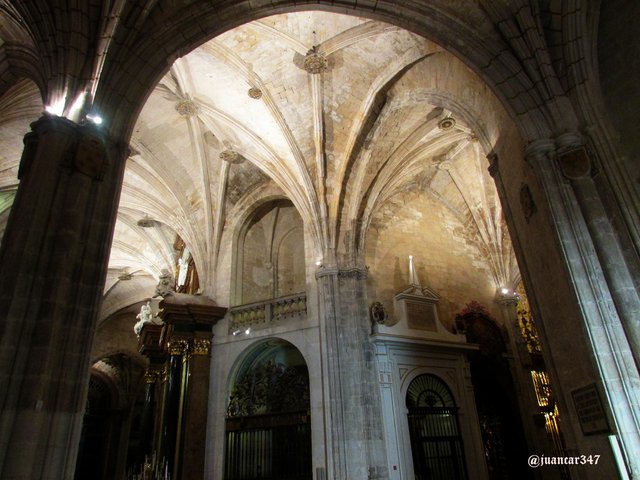
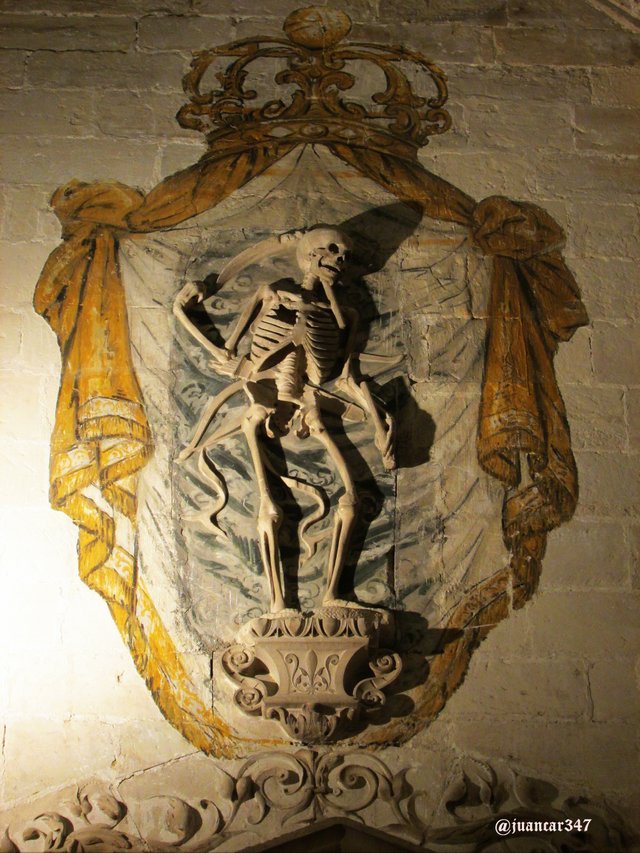
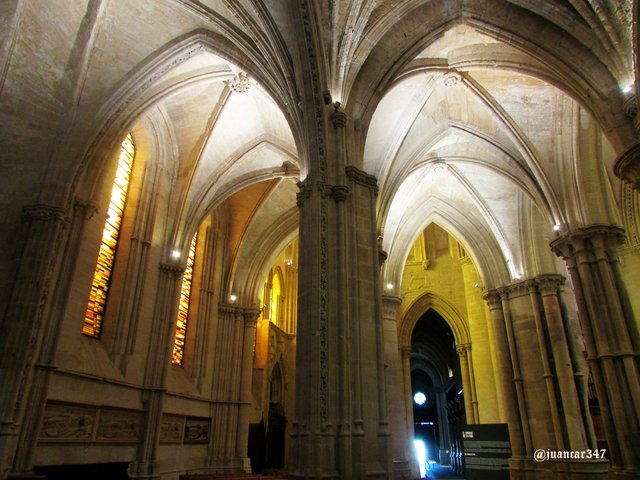
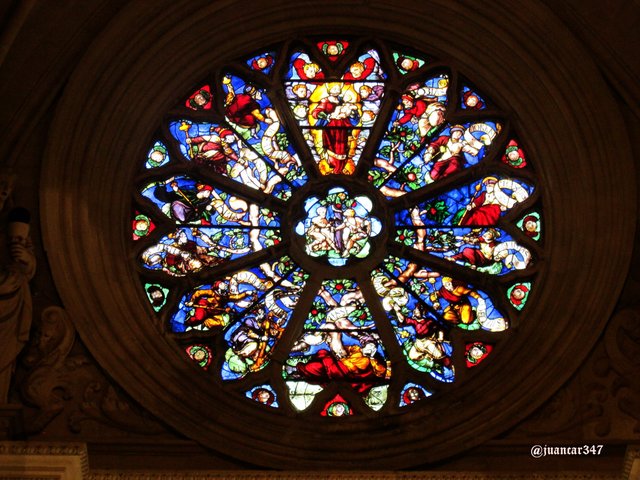
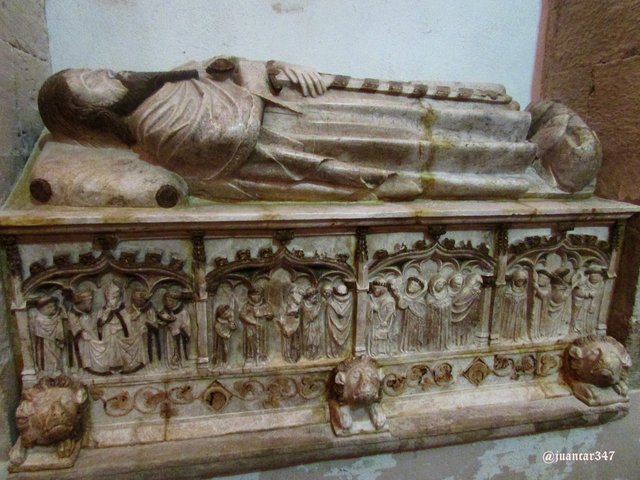
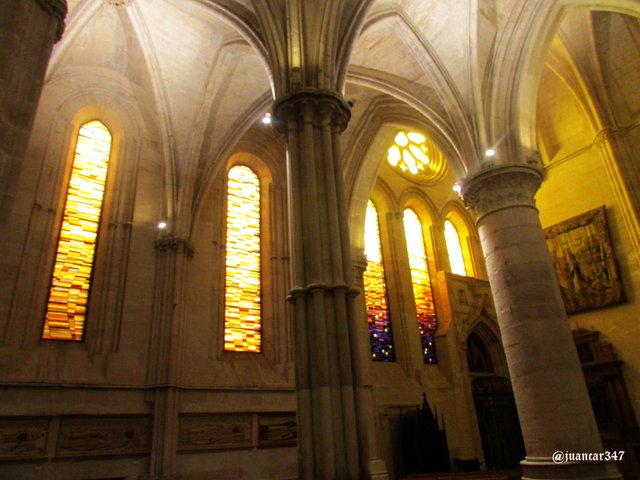
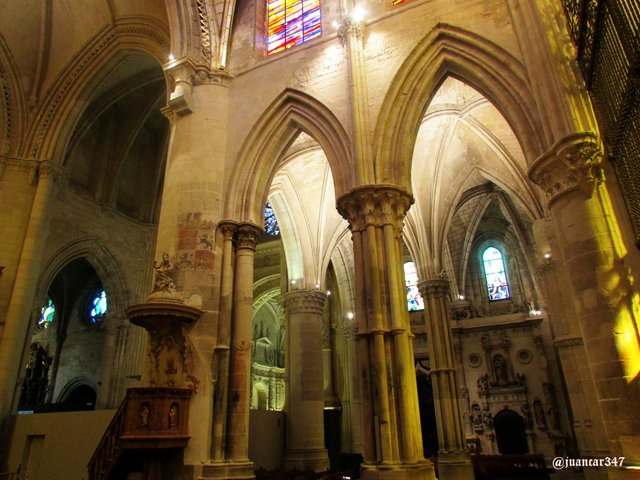
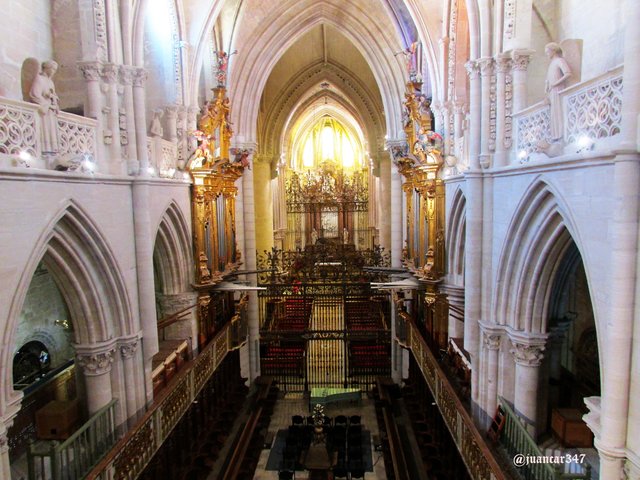
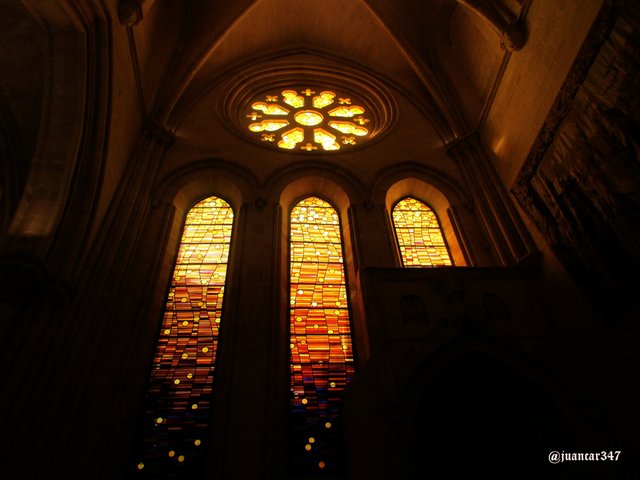
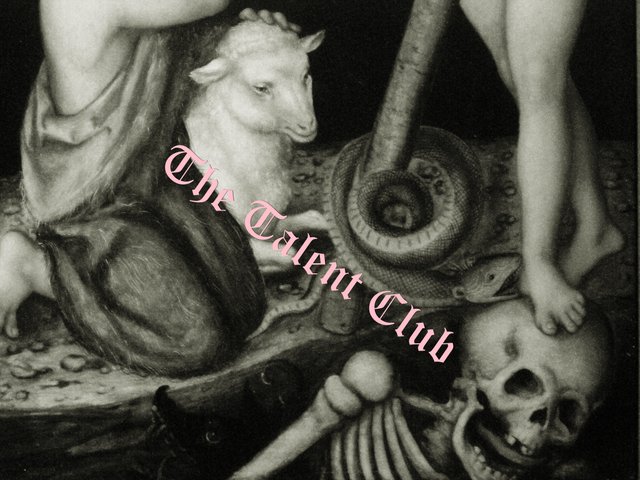
.jpg)
Congratulations, Your Post Has Been Added To The Steemit Worldmap!
Author link: http://steemitworldmap.com?author=juancar347
Post link: http://steemitworldmap.com?post=art-travel-and-culture-the-templars-and-the-cathedral-of-cuenca
Want to have your post on the map too?
Downvoting a post can decrease pending rewards and make it less visible. Common reasons:
Submit
Thanks
Downvoting a post can decrease pending rewards and make it less visible. Common reasons:
Submit